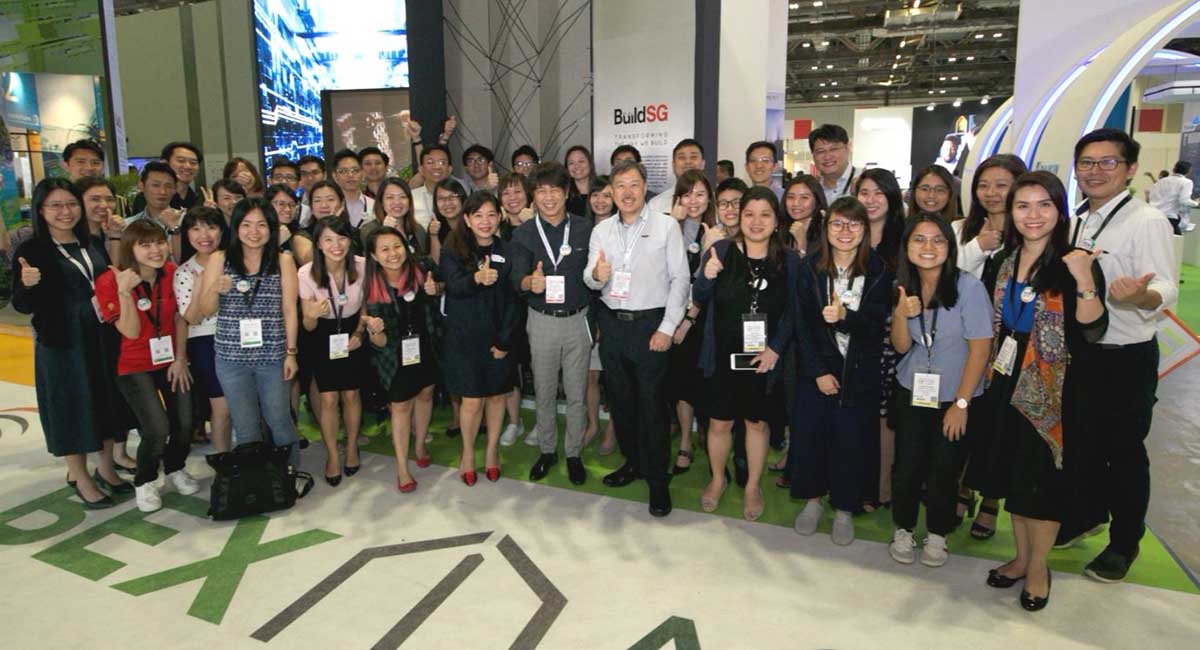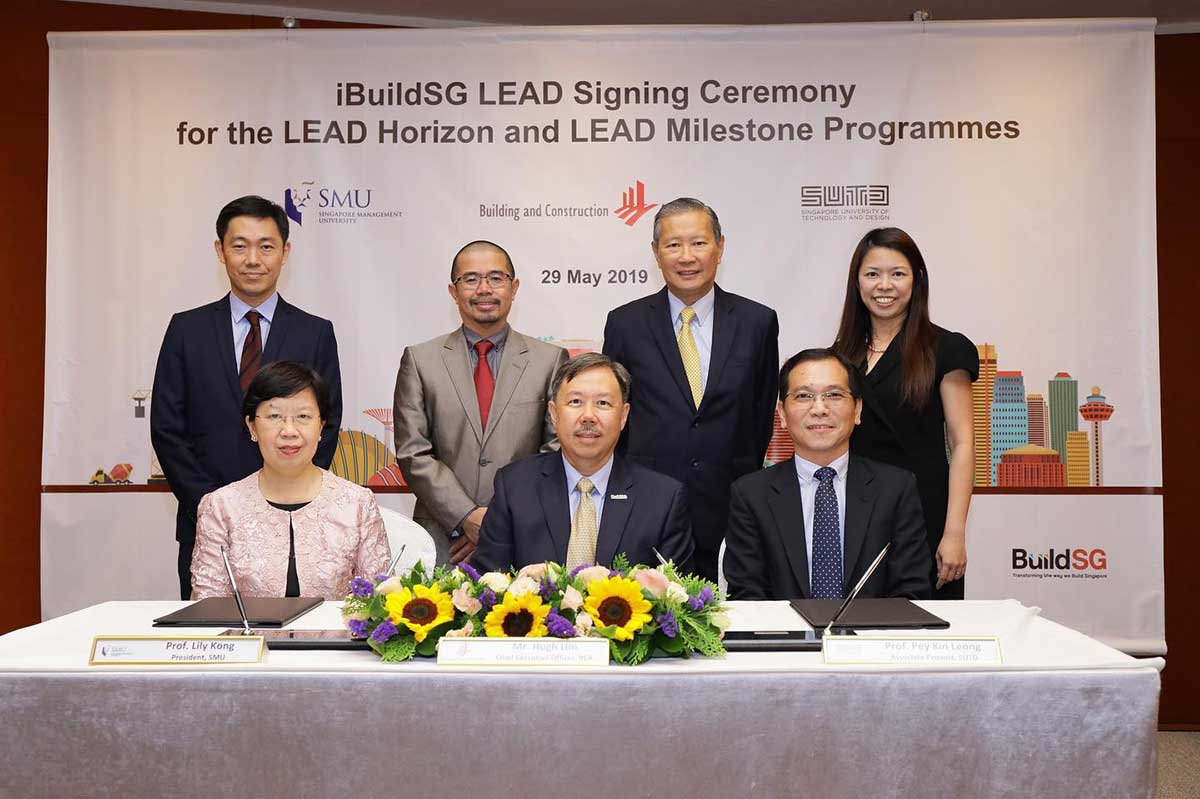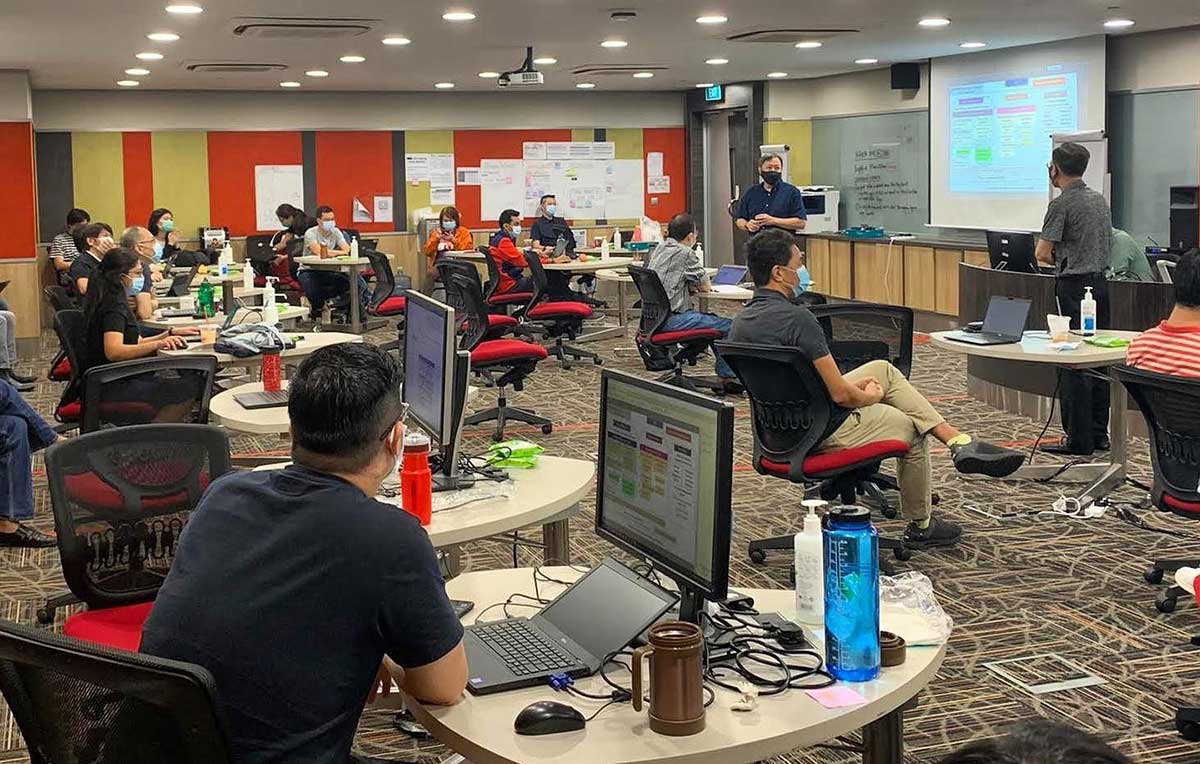We have seen positivity emerging from the pandemic. We have innovators coming up with inventions to help the industry deal with the challenges of COVID-19, such as safe distancing technology that can effectively be used at worksites, and more.
- Hugh Lim
Mr Hugh Lim, CEO of the Building and Construction Authority, has helmed key initiatives to rejuvenate and improve the built environment industry since he came on board in 2017. On 2 November, he will relinquish his role and hand over his duties to Mr Kelvin Wong, who was previously executive vice-president at the Economic Development Board (EDB). Here, Mr Lim speaks about his vision for the industry and BCA’s role amid the COVID-19 pandemic.
What are the key changes you have made in the last three years as CEO of BCA?
It’s been a very busy three years, but this year in particular, has been extremely hectic because of COVID-19. When I joined in 2017, we were putting together the industry transformation map to guide the reshaping of the built environment sector.
In the past, many initiatives would tend to be very much government-led. However, in the last few years, I've tried to change that through building a more collaborative relationship with stakeholders in the industry through the BuildSG movement.
|
|
 Mr Hugh Lim led the BCA team in organising the first International Built Environment Week in 2019, a flagship event that brought local and international practitioners together to network and exchange ideas on policy, business solutions and technologies, as well as explore business opportunities. Mr Hugh Lim led the BCA team in organising the first International Built Environment Week in 2019, a flagship event that brought local and international practitioners together to network and exchange ideas on policy, business solutions and technologies, as well as explore business opportunities.
|
|
As you may know, the industry is quite compartmentalised in nature, with many areas of specialisation. We have developers, architects, engineers, builders and facility management teams – extremely diverse. So I think it's been quite important for the transformation message to be one of trying to bring all these people together, so that they work collectively towards shared outcomes for the sector. One of the first shifts that I hope would stay on permanently is collaboration - seeing industry partners come together as a norm to create change and being part of the journey.
Secondly, people development. Earlier this year, we completed our skills framework for the sector, which provides a whole new way of looking at how one progresses through and developing skills and experience within the sector. I’m not talking about collecting certificates or qualifications. Rather, how the practical skills and experience gained by people on projects through the various roles they play, enables companies who have such people to do better, and providing wage benchmarks so that employers know how to value their people.
|
|
 One of the key manpower initiatives that Mr Lim spearheaded is the iBuildSG LEAD framework to support leadership development within the built environment sector. One of the key manpower initiatives that Mr Lim spearheaded is the iBuildSG LEAD framework to support leadership development within the built environment sector.
|
|
As part of the development of people, we’ve also put in place a programme – the iBuildSG LEAD programme - to develop the next generation of leaders so that the efforts we have taken to transform the industry can take root. We realised that previously, up and coming leaders from different companies rarely connected. Perhaps, they saw one another only as competitors. So, we wanted to create opportunities for them to get to know one another at the personal level, which will help lay the foundation to build partnerships.
Thirdly, facilities management. In 2018, BCA took on the challenge of transforming the facilities management industry. It was pretty much an orphan industry previously, with no public agency overseeing it. Yet, it is very important to the life cycle of a building, after construction, and making sure that a green building is operated in a sustainable way.
We wanted to shift the way building owners bought facilities management services. For example, encouraging organisations to sign longer contracts for facilities management services, instead of year-by-year renewal would better encourage the industry to invest in technology and grow.
Take robotic cleaning services for example. There is an upfront investment for such technology but the returns are high, in terms of reducing reliance on workers. Another example is smart facilities management services, such as encouraging the use of sensors or people counters -- technology that cuts reliance on manual processes and empowering building occupants to use, say, an app for self-help.
So you can see, we are working to change mindsets, so that the facilities management industry can transform and grow from strength to strength.
Do you think the built environment industry in Singapore is slow to adopt new technology like Design for Manufacturing and Assembly (DfMA)?
What the BCA has been trying to do is to build a new ecosystem. For example, when it comes to the adoption of newer technology like DfMA, we need different parties to play their respective roles for it to work. Now, where DfMA is concerned, the architect has to design for manufacturing in mind, meaning through the use of repeatable components. But if he doesn’t, you’re building bespoke components in the factory. And that’s not efficient. So, what’s key is the conversation that needs to happen between different parts of the value chain such that the architect designs in a way that lends itself to building with manufactured components in mind.
I think the industry is warming up to DfMA, but it’s not yet the default way of construction. We should see a 40% adoption rate across all projects this year, barring unforeseen circumstances, compared with over 30% last year. Our goal is to reach an adoption rate of 70% by 2025.
COVID-19 has dealt a huge blow to the built environment industry. What challenges do you think the industry faces and what are the ways it can overcome them to emerge stronger?
COVID-19 has impacted the sector greatly because of a heavy reliance on too many workers on site. So when we had to implement safe distancing measures, that was a problem. The other issue, of course, is that in the early stages of the pandemic, many of the workers were infected and we had to make sure they didn’t carry it on to the worksite, or spread it to other workers in the dorms.
In June, the industry cautiously restarted, but the main hindrance was that several of the large dorms still had workers infected with COVID-19. It took some time to really clear the dorms and since late July, we’ve seen most of the workers able to return to work.
The industry is facing the challenge of replacing workers in the future with travel restrictions still in place. This is something we have to deal with now and for the months ahead.
Yet, we have seen positivity emerging from the pandemic. We have innovators coming up with inventions to help the industry deal with the challenges of COVID-19, such as digital technology that can be used at worksites to support safe distancing.
|
|
 During the Covid-19 pandemic, BCA served as the one-stop shopfront for all matters related to construction restart. Mr Lim led the BCA team in re-organising its Operations Command Centre to ensure tighter coordination between the different teams handling worker, accommodation and worksite restart matters. During the Covid-19 pandemic, BCA served as the one-stop shopfront for all matters related to construction restart. Mr Lim led the BCA team in re-organising its Operations Command Centre to ensure tighter coordination between the different teams handling worker, accommodation and worksite restart matters.
|
|
Over the past six months, I have seen the outstanding showing of the entire BCA team as they stood up to the challenge of the pandemic. They have done a sterling job in the face of an unfamiliar threat and gone beyond their call of duty, working over many weekends and without respite for months. It has been true dedication, and I am proud of the team.
We are in a much better position now compared to the earlier days of the restart, but we must continue to be vigilant. I am confident by working even more closely as we had begun to do for the past three years, BCA and the built environment sector will emerge stronger.
Mr Lim will be appointed Executive Director (Designate), Centre for Liveable Cities (CLC) from 1 to 8 December 2020, and will take on the appointment on 9 December.